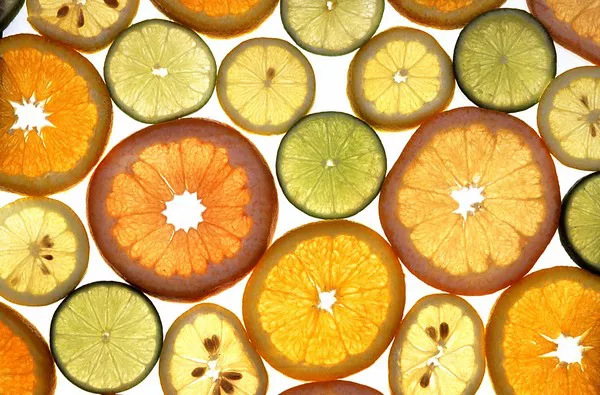Beautiful, healthy hair is often regarded as a symbol of vitality and beauty. However, hair loss can be a distressing experience for many individuals, prompting them to seek answers to the root causes of this common concern. One potential culprit that often surfaces in the discussion is a deficiency in B vitamins. In this article, we’ll explore the intricate relationship between B vitamins and hair health to determine whether a lack of these essential nutrients can indeed lead to hair loss.
Understanding B Vitamins: The Hair Growth Supporters
The B vitamins, a group of water-soluble vitamins that include B1 (thiamine), B2 (riboflavin), B3 (niacin), B5 (pantothenic acid), B6 (pyridoxine), B7 (biotin), B9 (folate), and B12 (cobalamin), are crucial for various bodily functions, including energy metabolism, red blood cell formation, and maintaining healthy skin and hair. B vitamins play a pivotal role in converting the food we eat into energy, a process essential for sustaining hair growth and strength.
Biotin, also known as vitamin H, is one of the B vitamins most commonly associated with hair health. It’s often referred to as the “hair vitamin” due to its role in supporting the structure of keratin, a protein that makes up the hair, skin, and nails. Biotin helps promote healthy hair by enhancing its texture, preventing breakage, and contributing to overall hair strength.
The Role of B Vitamins in Hair Growth
Hair growth is a complex process influenced by numerous factors, including genetics, hormonal balance, diet, and overall health. B vitamins contribute to hair health in several ways:
Cell Division: B vitamins are essential for cell division, including the cells responsible for hair growth. Adequate levels of B vitamins help ensure that hair follicles can effectively regenerate and produce new, healthy hair strands.
Oxygen and Nutrient Transport: B vitamins support the transport of oxygen and nutrients to hair follicles through the bloodstream. This nourishment is critical for hair growth and preventing hair loss.
Preventing Hair Thinning: A deficiency in certain B vitamins can lead to hair thinning and even hair loss. Vitamin B12, for instance, is crucial for the production of red blood cells, which carry oxygen to the scalp and hair follicles. Insufficient oxygen can weaken hair, making it more prone to breakage.
The Link Between Biotin Deficiency and Hair Loss
Of all the B vitamins, biotin is the most closely associated with hair health. Biotin deficiency has been linked to hair loss and brittle hair. This is because biotin plays a critical role in the development of keratin, a protein that forms the structural foundation of hair. When there is a deficiency of biotin, the hair may become weak and more susceptible to damage, leading to hair loss.
However, it’s crucial to note that biotin deficiency is relatively rare, and many people obtain an adequate amount of this vitamin through their diet. Biotin can be found in various foods, including eggs, nuts, seeds, and certain vegetables. Additionally, it’s a component of many hair and nail supplements and is included in some hair care products.
The Complex Nature of Hair Loss
While B vitamins are undeniably crucial for healthy hair, it’s important to recognize that hair loss is often a multifaceted issue. Genetic predisposition, hormonal imbalances, stress, medical conditions, and environmental factors can all contribute to hair loss.
Hair loss can also take different forms, such as androgenetic alopecia (male and female pattern baldness), telogen effluvium (temporary hair shedding), and alopecia areata (an autoimmune disorder causing hair loss). Each of these types may have different underlying causes, and B vitamin deficiencies might only be a contributing factor in some cases.
A Balanced Diet for Hair Health
Maintaining a balanced diet rich in essential nutrients, including B vitamins, is vital for promoting hair health. In addition to biotin, other B vitamins like niacin (B3) and pantothenic acid (B5) play roles in supporting hair structure and growth. Consuming a variety of foods can help ensure you get an adequate intake of these vitamins:
Biotin (B7): Eggs, nuts, seeds, sweet potatoes, and avocados are good dietary sources of biotin.
Niacin (B3): Foods like poultry, fish, peanuts, and mushrooms are rich in niacin.
Pantothenic Acid (B5): Whole grains, broccoli, and avocados are excellent sources of pantothenic acid.
Vitamin B12: Animal products like meat, fish, and dairy are primary sources of vitamin B12. If you follow a vegan or vegetarian diet, you may need to consider B12 supplements or fortified foods.
Balanced Nutrition: The Key to Healthy Hair
In summary, while B vitamins, particularly biotin, are essential for healthy hair, it’s important to recognize that a lack of these vitamins is just one potential factor in hair loss. Hair health is influenced by a multitude of factors, including genetics and overall health.
If you suspect a B vitamin deficiency may be contributing to your hair loss, consult with a healthcare professional or dermatologist who can provide guidance and recommend appropriate tests. In many cases, hair loss can be managed or even reversed through dietary adjustments, lifestyle changes, and targeted treatments. Remember that a comprehensive approach to hair health that includes a well-balanced diet and a healthy lifestyle is the key to maintaining a luxurious and vibrant head of hair.


